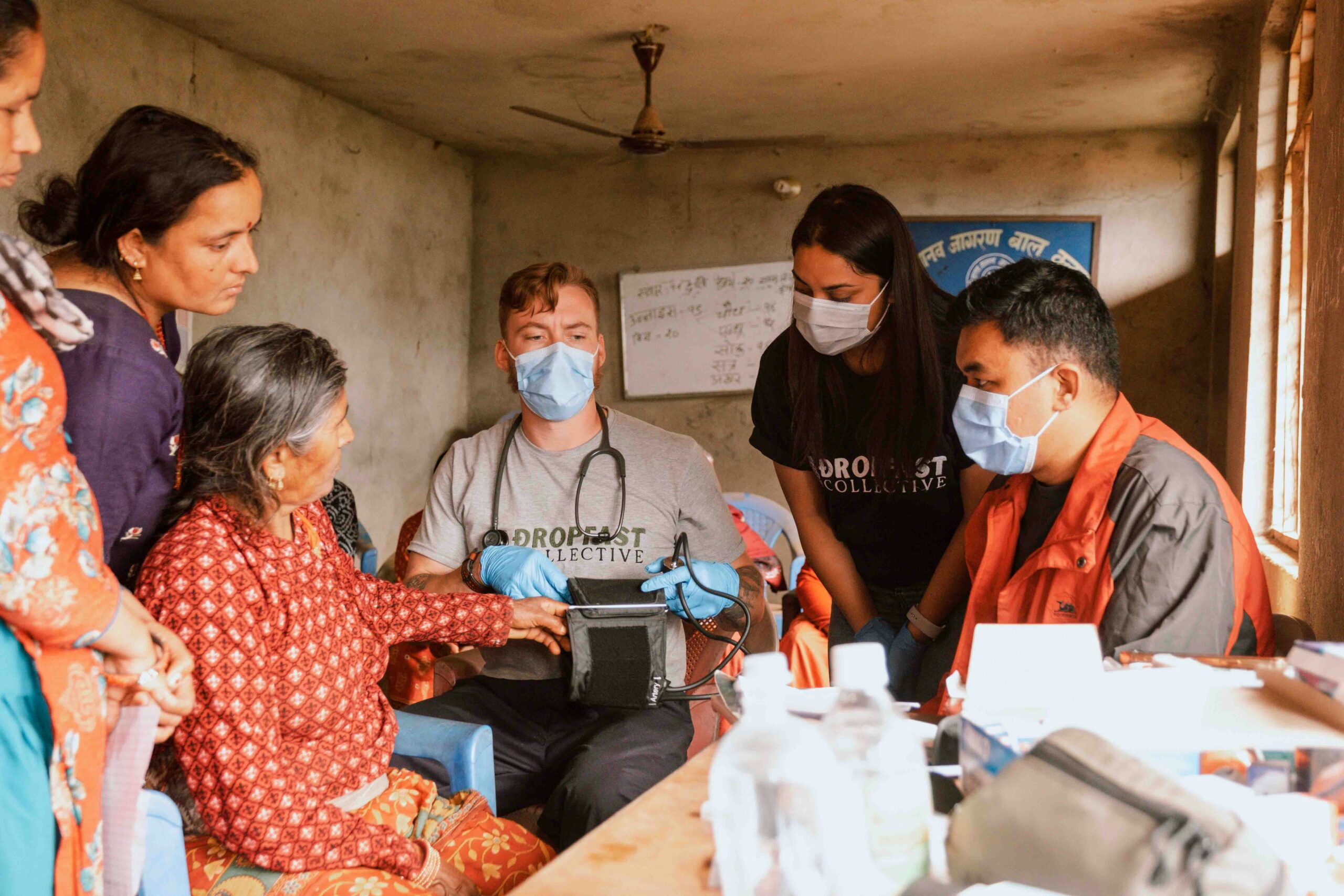Physician-Led Philanthropy: Transforming Communities and Healthcare

Physicians are uniquely positioned to drive meaningful change in healthcare beyond their clinical roles. Their expertise, credibility, and firsthand knowledge of patient needs allow them to design and lead charitable initiatives that directly address gaps in care. Physician-led philanthropy goes beyond simple donations—it encompasses hands-on involvement, mentorship, advocacy, and strategic program development.
These initiatives can range from community health programs and disaster relief efforts to global medical missions. By taking an active role, physicians ensure that charitable work is targeted, effective, and aligned with real-world healthcare challenges.
The Advantages of Physician-Led Charitable Programs
1. Direct Insight into Patient Needs
Physicians witness firsthand the barriers patients face, such as a lack of access to care, financial constraints, or inadequate resources. This insight enables them to design programs that directly address these challenges, ensuring that philanthropic efforts are both relevant and impactful.
2. Credibility and Trust
Patients and communities often trust physicians due to their expertise and ethical commitment. When physicians lead charitable initiatives, their credibility enhances community engagement, participation, and overall program success.
3. Holistic Approach to Care
Physician-led programs often combine medical care with education, prevention, and psychosocial support. By integrating these elements, these initiatives address not only immediate health issues but also long-term community well-being.
Key Areas Where Physician-Led Initiatives Make a Difference
1. Community Health Outreach
Physicians often spearhead programs targeting underserved communities. These initiatives may include free health screenings, vaccination drives, nutrition workshops, and wellness education. By focusing on prevention and early intervention, these programs reduce the burden on emergency departments and improve overall community health.
2. Disaster and Emergency Response
In natural disasters, pandemics, or mass casualty events, physician-led teams play a crucial role. They can coordinate rapid-response medical units, provide essential care on-site, and guide logistics to ensure that patients receive timely and effective treatment. Their leadership ensures that relief efforts are organized, efficient, and clinically sound.
3. Global Medical Missions
Physicians frequently lead international initiatives to provide healthcare in resource-limited regions. These missions may involve surgical interventions, training local healthcare workers, and establishing sustainable care programs. Through these efforts, physician-led philanthropy extends global health impact while fostering cross-cultural collaboration.
4. Mentorship and Education Programs
Physicians also create initiatives aimed at educating the next generation of healthcare professionals. Scholarships, training workshops, and mentorship programs empower students and young doctors to engage in community service and develop leadership skills, creating a ripple effect that strengthens healthcare systems.
Strategies for Successful Physician-Led Charitable Work
1. Identify Community Needs
Effective initiatives begin with understanding the specific needs of the target population. Physicians should conduct needs assessments, engage with community leaders, and gather feedback to ensure programs are meaningful and responsive.
2. Collaborate with Local and National Organizations
Partnerships with hospitals, NGOs, faith-based organizations, and government agencies enhance the reach and impact of physician-led programs. Collaboration allows for resource sharing, coordinated planning, and more comprehensive solutions to complex healthcare challenges.
3. Focus on Sustainability
Long-term impact requires programs that can continue beyond initial funding or involvement. Physician-led initiatives should prioritize capacity-building, training local staff, and creating infrastructure that ensures continuity of care.
4. Monitor and Measure Outcomes
Evaluating program effectiveness is essential for accountability and improvement. Physicians should track key metrics, such as patient outcomes, participation rates, and community impact, to refine strategies and demonstrate the value of their initiatives.
Case Studies Illustrating Impact
1. Mobile Clinics for Rural Communities
In several rural regions, physicians have established mobile clinics that provide primary care, vaccinations, and health education. These clinics have reduced hospital visits, improved early detection of diseases, and increased access to preventive care for populations that would otherwise be underserved.
2. Physician-Led Disaster Relief in Urban Areas
During hurricanes and floods, physician-led teams have coordinated emergency medical units, offering triage, acute care, and follow-up services. Their leadership ensured rapid response, reduced mortality rates, and enhanced coordination among volunteers, hospitals, and local authorities.
3. Global Surgery Missions
Some physicians have organized surgical missions to low-resource countries, performing life-saving procedures and training local medical teams. These missions provide immediate care while building sustainable surgical capacity, leaving lasting benefits for the communities served.
Overcoming Challenges in Physician-Led Philanthropy
1. Time and Resource Constraints
Physicians often balance demanding clinical responsibilities with philanthropic efforts. To manage this, initiatives should be strategically planned, with dedicated teams handling logistics, administration, and outreach.
2. Navigating Regulatory and Legal Requirements
Charitable programs must comply with local and national regulations. Physicians should work closely with legal advisors, hospitals, and partner organizations to ensure adherence to guidelines, ethical standards, and patient safety protocols.
3. Ensuring Equitable Access
Physician-led initiatives must avoid favoritism or unintentional exclusion. Program design should prioritize reaching marginalized populations and ensuring that benefits are distributed fairly across communities.
The Future of Physician-Led Charitable Initiatives
As healthcare challenges evolve, physician-led philanthropy is becoming increasingly vital. Advances in technology, telemedicine, and data analytics allow physicians to expand their reach, monitor outcomes more effectively, and design innovative solutions for complex health issues.
Additionally, physician-led programs are inspiring a culture of service within the medical community. By mentoring and involving students and junior doctors in charitable work, seasoned physicians cultivate a new generation of healthcare leaders committed to social responsibility and community impact.
Physicians as Catalysts for Change
Physician-led charitable initiatives are transforming both healthcare systems and communities. By leveraging their expertise, credibility, and leadership, physicians create programs that deliver immediate medical care, foster preventive health, and build long-term community resilience.
From local community clinics to international medical missions, physician-led philanthropy exemplifies the profound impact healthcare professionals can have beyond the clinic or hospital. These initiatives not only address urgent health needs but also inspire broader social change, strengthen healthcare capacity, and improve patient outcomes worldwide.
Ultimately, physician-led philanthropy is more than an act of charity—it is a strategic, sustainable, and transformative approach to healthcare that benefits both patients and society as a whole.
Additional Information
- Blogs
- charitable initiatives, healthcare challenges, international medical missions
- Dr. Seth Eidemiller